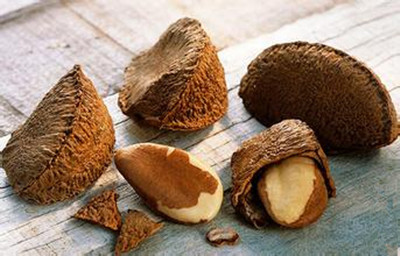Nuts, botanically speaking, are made up of both the seed itself and a hard outer layer that is the fruit, which does not split open when ripe.
从植物学角度上讲,坚果是由坚硬果皮和内含种子组成的果实。成熟时外壳也不会开裂。
Some examples of true nuts are acorns, hazelnuts and chestnuts.
比如橡果,榛子和栗子等就是这样的坚果。
Walnuts, pecans and almonds, in contrast, are edible seeds from a bigger fruit.
相比之下,核桃、胡桃和杏仁则是种子可以食用更大一点的水果。
Most of the inedible fruit is removed at harvest so when you buy walnuts and almonds in the shell, you're buying the seeds enclosed in woody endocarp, which is the remaining layer of the fruit wall.
大多数不宜食用的水果会在收获时被剔除,因此当你购买到带壳的核桃和杏仁,你实际上买的是仍然在果皮层,封装在木质、坚硬内果皮里面的种子。
Brazil nuts are also seeds.
同样巴西坚果也是种子。

They come from a capsule like fruit, in which several of the triangular seeds grow inside, arranged like the segments of an orange.
巴西坚果有类似水果的荚,内部是三角形形状的种子,就像橙子瓣一样排列。
Peanuts are the seeds of a legume, or member of the bean family.
花生是豆类的种子,或者豆家族的成员。
Pistachios, cashews, macadamias and pine nuts are all seeds rather than nuts.
开心果、腰果、夏威夷果、松子都是种子,而非坚果。













